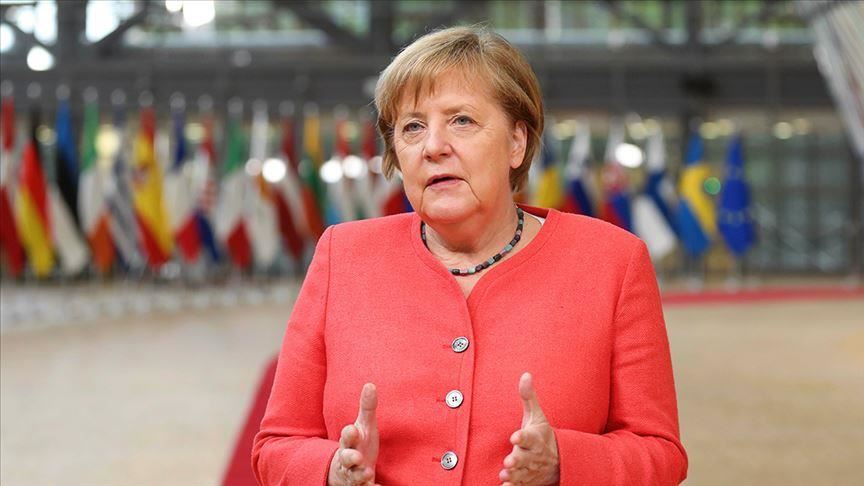

By Anadolu Agency
BERLIN, GERMANY
German Chancellor Angela Merkel on Thursday called for a diplomatic solution to tensions in the Eastern Mediterranean and underlined the importance of developing “constructive” relations with Turkey.
Speaking to reporters in Brussels ahead of a key summit of European leaders, Merkel said Germany’s EU term presidency will continue its efforts to find a peaceful solution to rising tensions in the region.
“Our relations with Turkey is highly complex. Despite all the difficulties, the EU has a great interest in developing constructive relations with Turkey,” she stressed.
Merkel reiterated the bloc’s solidarity with EU members Greece and the Greek Cypriot administration, but did not extend support for their call to impose additional sanctions against Turkey, due to recent tensions in the Eastern Mediterranean.
The German chancellor also underlined the importance of continued cooperation with Ankara on issues of common interest.
“We’re partners in NATO. We’re dependent on one another in addressing irregular migration,” she said, and reaffirmed EU’s continued support to Turkey for hosting almost 4 million Syrian refugees.
Turkey, which has the longest continental coastline in the Eastern Mediterranean, has rejected maritime boundary claims of Greece and the Greek Cypriot administration in the region, and stressed that these excessive claims violate the sovereign rights of both Turkey and the Turkish Cypriots.
Ankara has sent several drill ships in the past weeks to explore for energy on its continental shelf, asserting its own rights in the region, as well as those of the Turkish Republic of Northern Cyprus.
Turkish leaders have repeatedly stressed that Ankara is in favor of resolving all outstanding problems in the region through international law, good neighborly relations, dialogue, and negotiation.
We use cookies on our website to give you a better experience, improve performance, and for analytics. For more information, please see our Cookie Policy By clicking “Accept” you agree to our use of cookies.
Read More